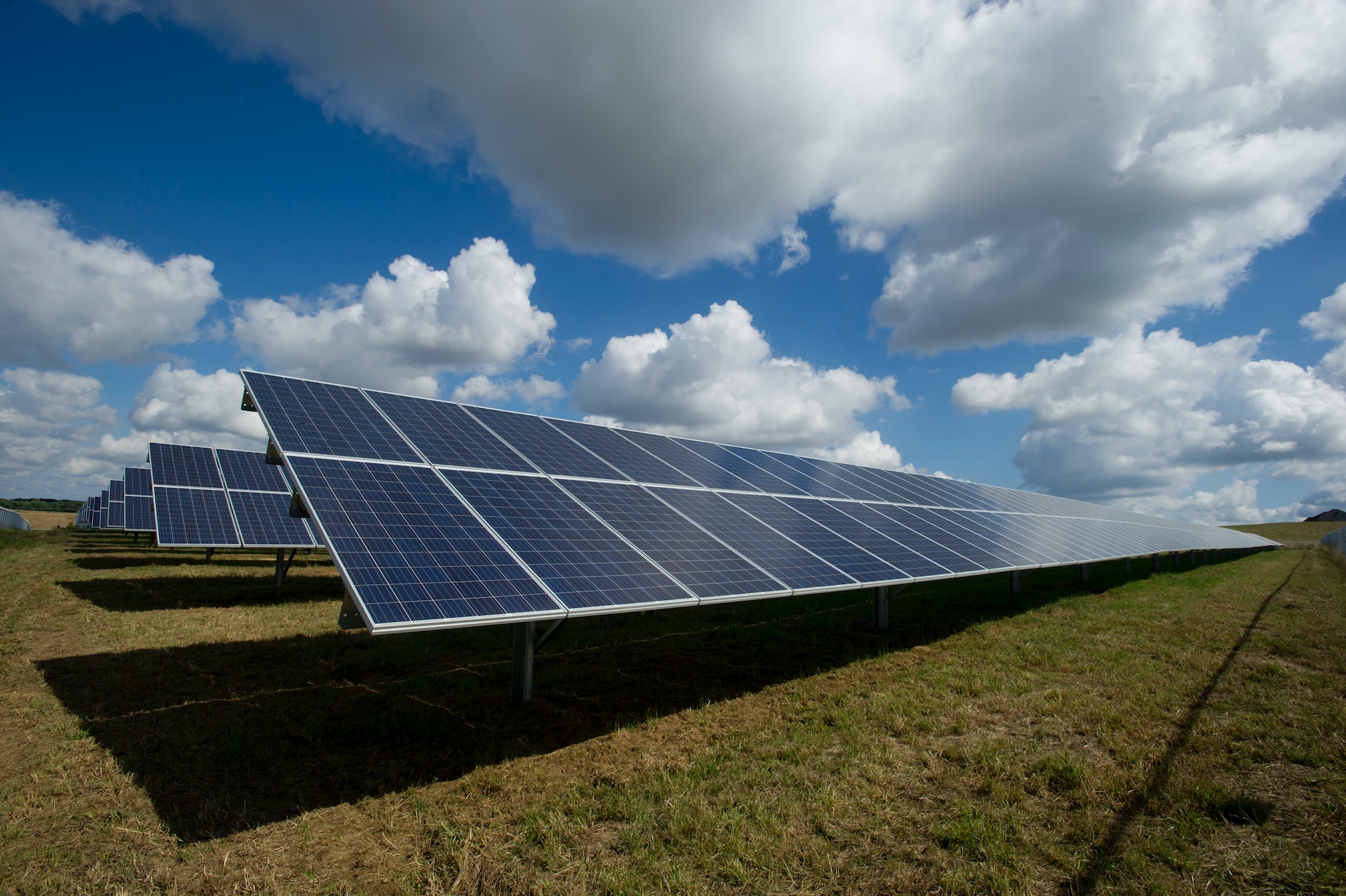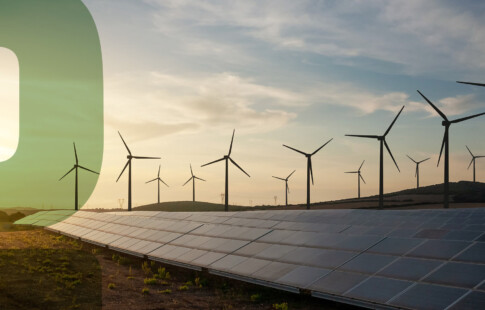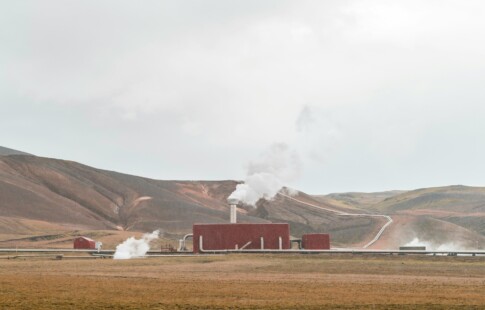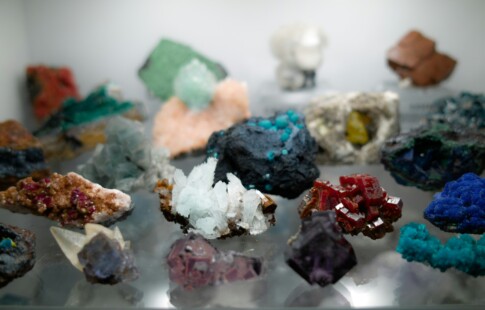
Do Solar Panels Work on Cloudy Days?
We are reader-supported. When you buy through links on our site, we may earn affiliate commission.
Yes, solar panels work on cloudy days. They may not be as efficient, but they still take in sunlight reflected off the clouds. Even at night — when solar panels are dormant — some can still power homes and businesses via a storage battery, although many do not have one.
How Do Solar Panels Work on Cloudy Days?
The skies may be overcast, but sunlight is still getting through. In fact, over 90% of the sun’s UV radiation passes through the clouds, which is why you can still get sunburned even on a gray, gloomy day. If sunlight didn’t penetrate the clouds, an overcast day would be as dark as night. Talk about inconvenient — life sure would look different in the Pacific Northwest!
It’s true that solar panels aren’t quite as efficient under cloudy conditions as they are on a sunny day. They may operate at only 10% to 25% efficiency depending on how thick the clouds are. Clouds are often heavy and dark during rainy days, which significantly affects the solar panels’ efficiency, while scattered clouds will have much less of an effect.
Standard Test Conditions
It’s important to note that solar panels don’t work at 100% efficiency even on warm, sunny days. Most solar panels will never achieve their listed efficiency rating. But this isn’t a case of false advertising — instead, the efficiency rating explains how well the panels work in standard test conditions.
Manufacturers rate solar panels based on how they perform when one kilowatt of sunlight per square meter shines on them and the cells are 77° Fahrenheit (25° Celsius). Photovoltaic cell temperature is typically hotter than the ambient air. The laboratory is kept cooler than 77° Fahrenheit during testing because solar panels perform best at lower temperatures — and because most people like it cooler, too!
A solar system that produces six kilowatts of electricity in any given moment under standard test conditions is called a six-kilowatt system. In real life, it may only produce four or five kilowatt hours of electricity due to indirect sunlight, inverter conversions, cabling, and panel mismatches. That is normal and expected.
Therefore, even though solar panels only get 10% to 25% efficiency on cloudy days, it isn’t as dramatic of a difference as it might seem at first. Even on a clear, sunny summer day, most solar panels operate well below 100% of their actual capacity.
Overall Efficiency
Solar manufacturers typically give good estimates of how efficient solar panels will be in a given area. They use software based on years of data that looks at weather patterns, solar radiation, and temperature in a particular region. Your solar panels might have weeks or even months of lower efficiency — such as during winter — but the overall efficiency still averages out over the course of a year.
Do Solar Panels Work in Snow?
If it’s snowing, it’s cloudy. There’s just no getting around it. But solar panels still work well during snowy days because of the light coming through the clouds. They also function more efficiently in cold weather. And since solar panels are made of dark glass, snow tends to melt and slide off before it has a chance to dampen performance.
Solar panels cannot generate energy if snow is sticking to them. If that happens, you can use a roof rake, snowblower or soft broom to remove it.
Some solar panels — especially in colder regions — come equipped with heating systems to prevent snow and ice accumulation. A heating system typically consists of a series of small pipes or hoses containing warm water. Or, it might use electrical coils or wires attached to the panels to keep them from freezing.
Do Solar Panels Work at Night?
No, solar panels do not actively function at night. Technically they can generate power from the moonlight, but it’s such a negligible amount that it isn’t useful. Instead, people either rely on battery storage or the main power grid to meet their nighttime electricity needs.
How to Maximize Solar Panel Efficiency
Because solar panels don’t work as well on cloudy days, it’s important to maximize the efficiency of your solar system in other ways if you live in a rainy climate.
Buy Efficient Panels
First, you can buy more efficient types of solar panels. Monocrystalline panels are the most expensive, but they’re also the highest performers, getting up to 27% efficiency in perfect weather conditions. In contrast, polycrystalline panels — the most common type of solar panel — average around 20% efficiency.
Use Placement to Your Advantage
Next, it’s important to install solar panels in areas that receive as much sun as possible. Trim overhanging tree branches to maximize the amount of sunlight hitting the panels. You also need to factor in any tall buildings that could cast shade on them.
Consult a Professional
Get expert guidance when installing a photovoltaic system. Ideally, it’s going to last you decades, so it’s wise to consult a professional when it comes to placement and proper installation. Solar installers can calculate the ideal spot on your roof or in the yard to maximize efficiency.
Clean the Panels
Cleaning solar panels periodically can also improve efficiency. Over time, dust tends to settle on them and causes a slight drop in energy output. If you also go long periods of time without heavy rain, the dirt will build up and cause an even greater decline in efficiency.
If you plan to clean your solar panels yourself, you must shut off the electricity first. You can use soap mixed with one part vinegar and eight parts water to gently wipe the solar panels clean. It’s often safest to use a long-handled brush for this process rather than climbing on the roof. Then, you can use a garden hose to rinse the panels.
Getting the Most From Solar Panels
Solar panels aren’t perfect, but they still work fairly well on cloudy days. They’re a great investment if you’re looking to reduce your carbon footprint, lower your electricity bill and enjoy a greater sense of energy security.
Share on
Like what you read? Join other Environment.co readers!
Get the latest updates on our planet by subscribing to the Environment.co newsletter!
About the author

Jane Marsh
Starting from an early age, Jane Marsh loved all animals and became a budding environmentalist. Now, Jane works as the Editor-in-Chief of Environment.co where she covers topics related to climate policy, renewable energy, the food industry, and more.





